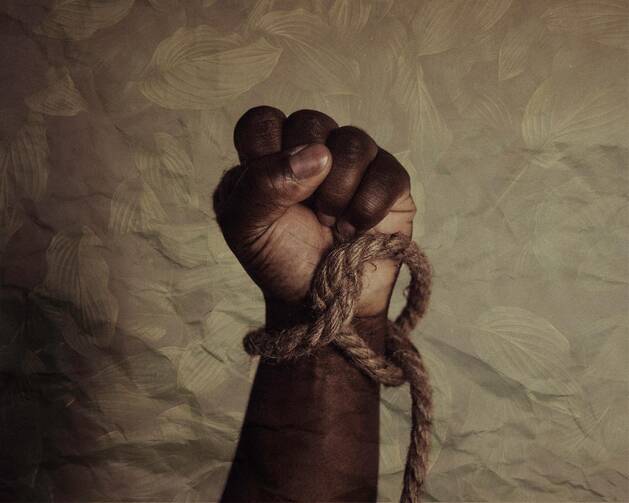A Reflection for Monday of the Twenty-eighth Week in Ordinary Time
Find today’s readings here.
Abraham had two sons, one by the slave woman and the other by the freeborn woman… Now this is an allegory. These women represent two covenants. One was from Mt. Sinai, bearing children for slavery; this is Hagar. Hagar represents Sinai, a mountain in Arabia; it corresponds to the present Jerusalem, for she is in slavery along with her children. But the Jerusalem above is freeborn, and she is our mother. (Gal 4: 22-26)
The slavery Paul speaks of in this passage is not physical, bonded slavery. It is not about slavery of the kind that centuries later would play out in the raids of African tribal chieftains, the horrors of the Middle Passage, the brutality of a plantation owner.This reading from Galatians is rather an allegory, as Paul himself says, about servitude to the law of Moses as opposed to the liberation found in Christ.
Paul is exhorting the early Christians not to be slaves to a strict and sterile adherence to the letter of the Mosaic law. Such a practice is a cold, mechanical, bootstrap kind of religious profession where, through sheer will power of legal observance, one muscles their way into God’s good graces. (It is also a perversion of God’s astounding covenant with the Israelites).
The bible has been used over and over again to justify human slavery. Yet that same bible also serves up text that can be read as agitating against it.
Christians are called instead to the way of love, mercy, forgiveness, peace, brotherhood and eternal salvation found in our savior.
Nevertheless.Even though Paul is not making a point about forced human labor, it is true that Hagar was a slave in the household of Sara and Abraham. And it is true that with any mention of slavery we immediately think of millions of Black men and women toiling in the fields and households in the American South. And it is true that even today there are an estimated 28 million people the world over living in some kind of slavery. They work in garment factories, farm fields, food service, stadium construction (see 2022 Qatar World Cup). A vast number of modern slaves are young women in south Asia forced into the sex trade.
It is also true that the bible, including the letters of Paul, has been used over and over again to justify human slavery. Yet that same bible also serves up text that can be read as agitating against it. In the final line of today’s passage, Paul urges the Galatians to liberate themselves from slavery to the Law, and we also read an exhortation against any kind of slavery, be it sexual, spiritual, mental, emotional, legal, religious; be it the chains others put on us, or we put on ourselves: For freedom Christ set us free, Paul writes, so stand firm and do not submit again to the yoke of slavery.







